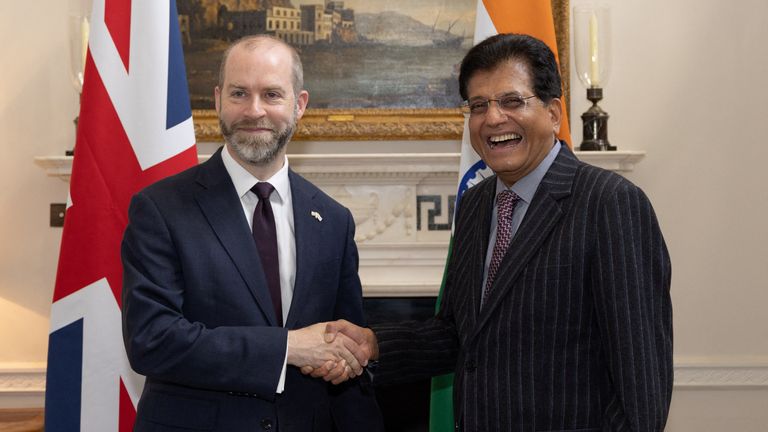Tariffs slashed, visa rules eased—but secrecy over steel imports sparks backlash
INDIA and the United Kingdom signed a landmark trade agreement this week, reducing tariffs on goods and services and easing restrictions for workers from both countries. Under the deal, Indian nationals working in the UK will be exempt from paying National Insurance contributions for up to three years. In return, UK workers in India will enjoy similar relief from local social security charges.
Kemi Badenoch, the Conservative leader and former Business Secretary who helped negotiate the agreement, said the deal would likely increase demand for visas from Indian workers. However, she stressed that immigration levels would remain under ministerial control.
Claims that the agreement will cost the UK £200 million in lost National Insurance contributions have been dismissed by analysts. As workers would not have been in the UK without the trade deal, such figures are considered speculative. Income tax obligations remain unaffected.
Despite the broad economic benefits, several aspects of the agreement remain shrouded in secrecy. The UK Government has declined to confirm whether it made concessions on Indian steel imports in exchange for trade access. When pressed in Parliament by Welsh Liberal Democrat spokesperson David Chadwick, Trade Minister Douglas Alexander refused to answer questions on whether tariffs on Indian steel would be reduced or whether Indian steel would be exempt from the UK’s new Carbon Border Adjustment Mechanism.
The refusal to clarify has sparked political backlash in Wales, where the steel industry remains a critical employer. The Welsh Liberal Democrats warned that reducing tariffs on Indian steel would amount to a “betrayal” of Welsh communities, particularly in light of Tata Steel’s recent decision to shut down blast furnaces in Wales while expanding production in India.
Concerns have also been raised about the future of British Steel’s Scunthorpe works, which has received hundreds of millions in investment to support domestic virgin steel production. Industry experts warn that undercutting UK-produced steel could lead to further job losses and damage Britain’s strategic manufacturing base. Critics argue that both Conservative and Labour governments share responsibility, with the former having funded Tata’s offshoring and the latter accused of passively allowing the decline of UK steel capacity.
The trade pact, the largest signed since Brexit, will come into effect next year. It will eliminate tariffs on a wide range of British exports to India—including whisky, cars, and aerospace products—while reducing import costs for UK consumers on Indian goods such as food and textiles.
Tariffs on British whisky and gin will be slashed from 150 percent to 75 percent initially, and later to 40 percent. Car tariffs will fall from 100 percent to 10 percent. For the first time, UK firms will gain secure access to India’s public procurement market—worth an estimated £38 billion annually across roughly 40,000 contracts.
While some have criticised the agreement as being skewed in India’s favour, others point to India’s rapid economic growth and the deal’s long-term potential for UK exporters. Trade with India currently represents under 3 percent of Britain’s total trade, but the UK Government expects that within a decade, 85 percent of UK exports to India will be tariff-free, while India will enjoy 99 percent tariff-free access to the UK market.
The Indian Prime Minister, Narendra Modi, hailed the agreement as a “historic milestone” that will deepen bilateral ties and drive innovation, investment, and job creation. India’s Commerce Secretary, Sunil Barthwal, described it as the most comprehensive Free Trade Agreement India has ever signed, predicting bilateral trade could double to $120 billion by 2030.














